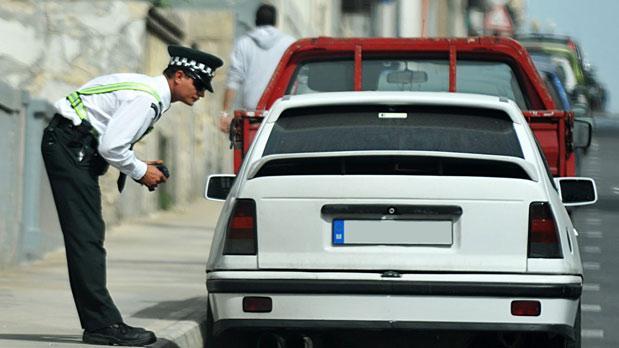
Scandals have emerged in the last few months of traffic fines issued by traffic wardens thrown in the fire of oblivion to help someone dodge the law. In one case it appears to have allowed a business tycoon (and suspected criminal) to profiting from a racket of charging their clients for traffic fines that are then destroyed so they, together with their accomplices, could pocket the money.
Some things I feel more strongly about than others. This is one of them. When I first joined Austin Gatt’s staff in 2000, his department, headed by Claudio Grech, was overseeing the introduction of local tribunals and traffic wardens. Like many of Austin Gatt’s political initiatives, it wasn’t popular, but it was good.
It ticked a few political objectives from the time, including decentralising minor court business from the Valletta courts and empowering Local Councils to prioritise enforcement activities in their constituencies.
There was another less spoken about objective: fighting corruption. The new system digitised traffic fines, replacing in most cases the informal system of waiter’s chits that the police use. With the old system there is no paper trail. A policeman could issue you a Lm10 fine but, if the policeman was so inclined, you could pay them Lm5 there and then and they’d let you get away with it. You saved Lm5, they pocketed Lm5. That, at the time, was considered as corruption.
The digitisation did away with that by creating a rock-solid audit trail. If anyone “cancelled” a fine, there would be a record of them doing it. Local Councils would know that it is happening. Every Local Council has politicians from the Opposition party, many are run by an Opposition party. They would know if someone was cheating the system and they would have every motivation to expose them. You couldn’t ask for a more transparent way of managing fines to make sure there’s no dirty business.
Naturally, Labour scrapped all that, centralising the administration of local fines and assigning cronies to run it, opening the door to the sort of corruption that from halving a Lm 10 became pocketing € 3 million in a racket run by a car rental company that was allegedly a front for organised crime.
When you and I, who do our best to avoid breaking the law but pay our fines when we slip and get caught, see this sort of corruption we are entitled to feel this is unfair. We shouldn’t be expected to obey the law, and pay a fine when we don’t do so, when we know that people who bribe the right people have a license to break the law and nothing would ever happen to them.
I can understand the PN feeling they had to tap in the sense of dissatisfaction and unfairness that law-abiding citizens feel when they hear of how the crooks get away with anything. But the PN’s solution, in attempting to be popular, is populist. A license to break traffic laws without consequence twice a year does not address what hurts most here. It is not the €24 fine for parking on the kerb that hurts. What hurts is having to pay it when those who do worse habitually don’t.
It is that problem, that unfairness, that the PN needs to promise to address.
Also, I can, with some effort, live with a license to break the law twice a year without consequence if the law you’re breaking is something usually innocuous like parking too close to the corner. I hope we’re not giving people free parking twice a year on disabled parking bays, for example, or a blanket twice-yearly amnesty on any behaviour that could put other people’s lives at risk, like driving past a speed camera beyond the speed limit.
There’s no clarity on this and the doubt, frankly, rankles.